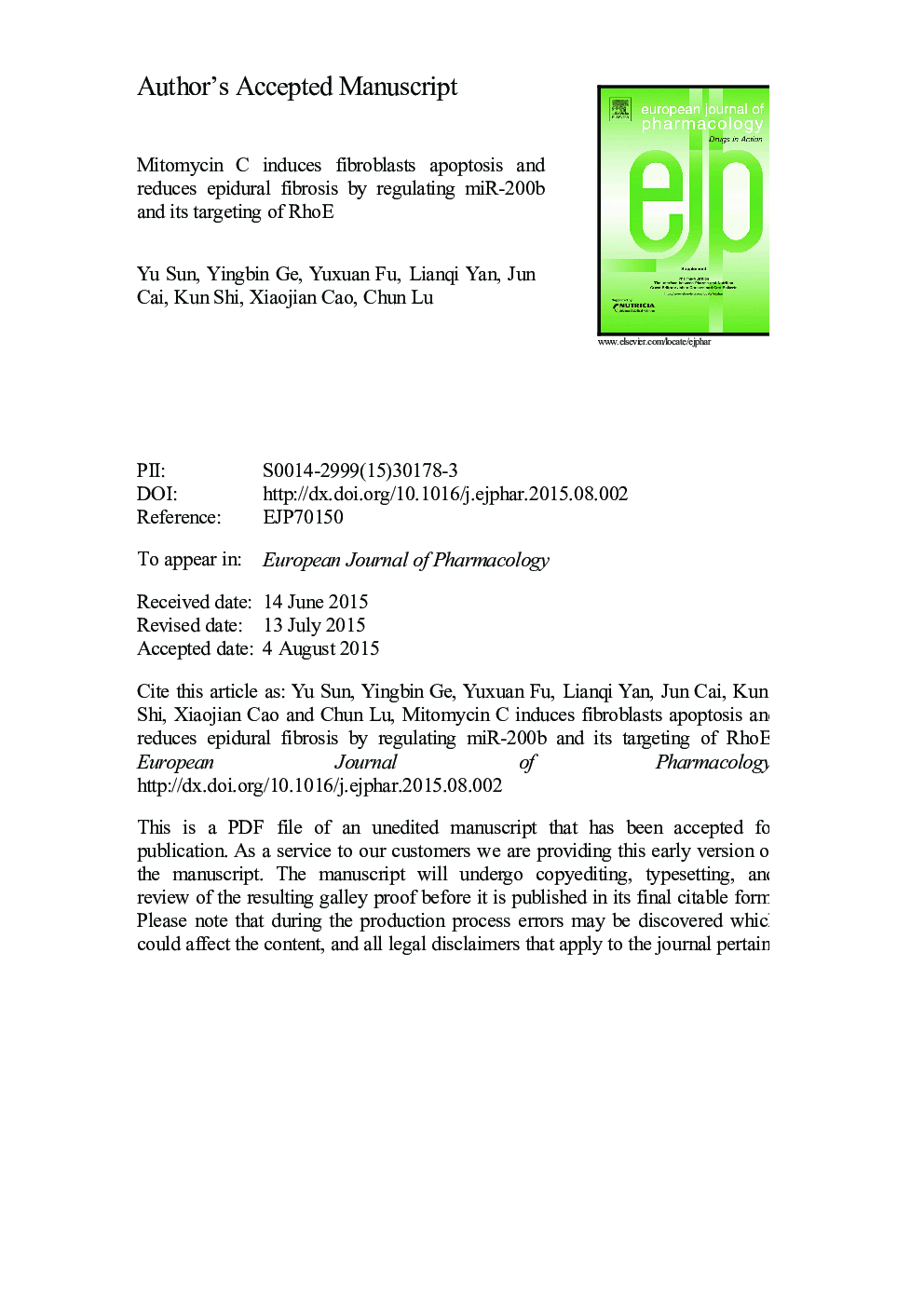| Article ID | Journal | Published Year | Pages | File Type |
|---|---|---|---|---|
| 5826872 | European Journal of Pharmacology | 2015 | 28 Pages |
Abstract
Mitomycin C (MMC) is known to reduce epidural fibrosis, but the underlying mechanisms have not yet been elucidated. Aberrant miR-200b expressions have been reported in multiple types of fibrotic tissues from many diseases. The aim of this study was to clarify the mechanism by which MMC induces fibroblasts apoptosis and reduces epidural fibrosis. The expression of miR-200b in human fibroblasts was determined after MMC treatment, and the targeted association between miR-200b and RhoE was determined using the luciferase activity assay. The effects of MMC and miR-200b on human fibroblasts apoptosis were evaluated using flow cytometry and western blot analysis. The effects of MMC and miR-200b on epidural fibrosis were evaluated using the Rydell classification, hydroxyproline content, apoptotic cell count and histological analysis. The study revealed that MMC could significantly downregulate miR-200b expression and induce human fibroblasts apoptosis. The direct downregulation of miR-200b could induce human fibroblasts apoptosis. Furthermore, we identified the binding sequence for miR-200b within the 3â² untranslated region of RhoE. RhoE was confirmed to be a direct target of miR-200b, and RhoE itself acted as a promoter of fibroblasts apoptosis. The inhibition of miR-200b increased fibroblasts apoptosis and reduced epidural fibrosis in rats, which was in accordance with the effect of MMC. This study suggests that MMC induces fibroblasts apoptosis and reduces epidural fibrosis by regulating miR-200b expression and its targeting of RhoE.
Related Topics
Life Sciences
Neuroscience
Cellular and Molecular Neuroscience
Authors
Yu Sun, Yingbin Ge, Yuxuan Fu, Lianqi Yan, Jun Cai, Kun Shi, Xiaojian Cao, Chun Lu,
